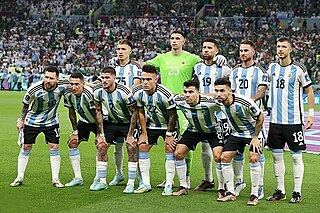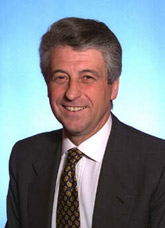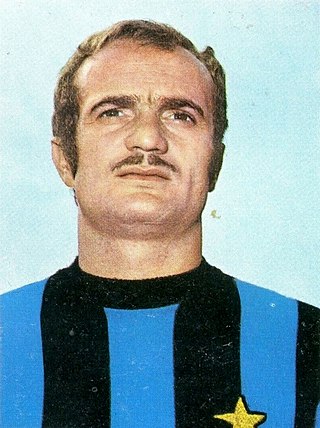
The FIFA World Cup, often called the World Cup, is an international association football competition among the senior men's national teams of the members of the Fédération Internationale de Football Association (FIFA), the sport's global governing body. The tournament has been held every four years since the inaugural tournament in 1930, with the exception of 1942 and 1946 due to the Second World War. The reigning champions are Argentina, who won their third title at the 2022 tournament.

The Brazil national football team, nicknamed Seleção Canarinho, represents Brazil in men's international football and is administered by the Brazilian Football Confederation (CBF), the governing body for football in Brazil. They have been a member of FIFA since 1923 and a member of CONMEBOL since 1916.

The 1970 FIFA World Cup was the 9th edition of the FIFA World Cup, the quadrennial international football championship for men's senior national teams. Held from 31 May to 21 June in Mexico, it was the first World Cup tournament held outside Europe and South America, and also the first held in North America. Teams representing 75 nations from all six populated continents entered the competition, and its qualification rounds began in May 1968. Fourteen teams qualified from this process to join host nation Mexico and defending champions England in the 16-team final tournament. El Salvador, Israel and Morocco made their debut appearances at the final stage.

The 1974 FIFA World Cup was the 10th FIFA World Cup, a quadrennial football tournament for men's senior national teams, and was played in West Germany between 13 June and 7 July. The tournament marked the first time that the current trophy, the FIFA World Cup Trophy, created by the Italian sculptor Silvio Gazzaniga, was awarded. The previous trophy, the Jules Rimet Trophy, had been won for the third time by Brazil in 1970 and awarded permanently to the Brazilians.

The Italy national football team has represented Italy in men's international football since its first match in 1910. The national team is controlled by the Italian Football Federation (FIGC), the governing body for football in Italy, which is a co-founder and member of UEFA. Italy's home matches are played at various stadiums throughout Italy, and its primary training ground and technical headquarters, Centro Tecnico Federale di Coverciano, is located in Florence.

Giovanni "Gianni" Rivera is an Italian politician and former footballer who played as an attacking midfielder.

Roberto Boninsegna is an Italian former professional footballer who mainly played as a forward. After retiring, he worked as a football manager. As a player, he played for the Italy national side at two World Cups, reaching the final in 1970.

Tarcisio Burgnich was an Italian football manager and player, who played as a defender.

Alessandro "Sandro" Mazzola is an Italian former professional footballer, who played as a forward or attacking midfielder for Internazionale and the Italy national team. He currently works as a football analyst and commentator on the Italian national television station RAI.

The Anglo-Italian Cup was a European football competition.

The Italy women's national football team has represented Italy in international women's football since their inception in 1968. The team is controlled by the Italian Football Federation (FIGC), the governing body for football in Italy.

Ferruccio Valcareggi was an Italian football player and coach, who played as a midfielder.

Enrico "Ricky" Albertosi is an Italian former footballer who played as a goalkeeper. Regarded as one of Italy's greatest ever goalkeepers, he had a successful club career, winning titles with Fiorentina, Cagliari, and Milan, before retiring with Elpidiense. He also played for the Italy national team in the 1966 World Cup and the 1970 World Cup, in which Italy reached the final, as well as being a member of the Italy teams that took part in the 1962 and 1974 World Cups. Albertosi was also included in the Italy squad that won the 1968 European Championship.
The 1970 Anglo-Italian Cup was the inaugural Anglo-Italian Cup competition. The European football competition was played between clubs from England and Italy and was founded by Gigi Peronace in 1970, following the success of the Anglo-Italian League Cup. The competition culminated in a final between Napoli and Swindon Town. Swindon won the competition after leading in the final which was abandoned before full-time due to violence.

Pierino Prati was an Italian footballer who played mainly as a forward. He began his career with Salernitana, and later played for several other Italian clubs, including a successful spell with AC Milan, with whom he won several titles. As of 2024, he is the second to last person to score a hat-trick in a European Cup final, having done so in 1969 against Ajax.
Spartaco Landini was an Italian football defender and later a manager.

The 1970 FIFA World Cup final was held on Sunday, 21 June, in the Estadio Azteca in Mexico City, to determine the winner of the 1970 FIFA World Cup. This final, between Brazil and Italy, marked the first time that two former world champions met in a final; Italy had previously won the World Cup in 1934 and 1938, while Brazil won in 1958 and 1962.

The 1971 Women's World Cup was an association football tournament for women's national teams organised by the Federation of Independent European Female Football (FIEFF) in Mexico in August–September 1971. Held in Mexico City and Guadalajara, it is the second known tournament to be named as a women's football World Cup after the 1970 edition in Italy and the first time in the same place after the men's 1970 FIFA World Cup tournament in the previous year. It was held twenty years before the first official FIFA women's world cup.
The 1970 Women's World Cup was an association football tournament organised by the Federation of Independent European Female Football (FIEFF) in Italy in July 1970. It featured women's teams from seven countries and is the first known tournament to be named as a women's football World Cup.

The Italy national under-23 football team represented Italy in international under-23 football competitions. Managed by the Italian Football Federation, it ceased to exist after the suppression of the UEFA European Under-23 Championship in 1977; its heir is the Olympic team, which has the same age criteria as the former under-23s.


















